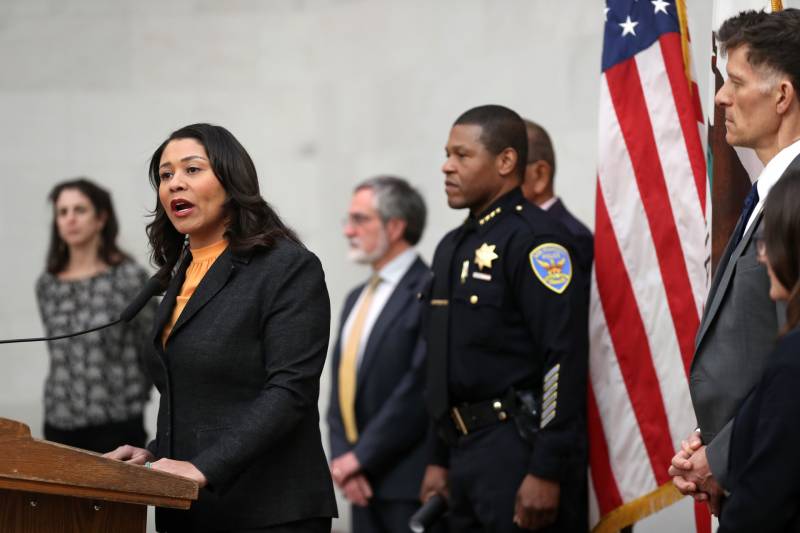Several Bay Area counties announced a new shelter-in-place order on Monday morning that requires people to stay at home and leave only for essential activities over the next three weeks in order to limit the spread of the novel coronavirus.
In a joint release, six counties — San Francisco, Marin, Alameda, Contra Costa, Santa Clara and San Mateo, as well as the City of Berkeley — said that the decision was made "with input from the U.S. Centers for Disease Control and Prevention (CDC) and best practices from other health officials around the world."
San Francisco Mayor London Breed spoke to KQED's Scott Shafer and Marisa Lagos to explain the reasoning behind this unprecedented order.
This interview has been edited for length and clarity.
How did this decision come about?
Part of every directive that I've issued has come from information provided to me from public health experts. So, the conversations they have had generated the response that you're seeing today — and that is to shelter in place. And to make sure that people, of course, have access to the essential things that they need, like food and gas and other things. But, more importantly, we want to keep people away from one another to prevent the spread.
Was there a tipping point that caused this unprecedented order?
It's not necessarily about a tipping point. We're looking at the data, we're looking at the number of cases, we're looking at the number of test kits we have, we're looking at the protective gear. And our biggest concern — and I think the concern of our health care expert[s] — is that the system could be overwhelmed. And the lack of resources and support that we're getting at this time from the federal administration through the CDC has been very challenging.
I think that people are not understanding the fact that there are ... numerous people — who we are not able to test because [of] our limitations around our tests — that are walking around with this virus, that are asymptomatic, and that may be spreading it. And this is why this order is important.
How do you want people to think about what they feel they need to do is, in fact, essential?
Well, I think it's important that people just be considerate and use common sense. Because, for example, if you need food and you need to also help take care of a neighbor or pick up medications for a neighbor, or what have you, then yes, that makes sense. But just be mindful that whether ... you could be potentially walking around with this virus and your interactions with other people can have an impact on public health.

